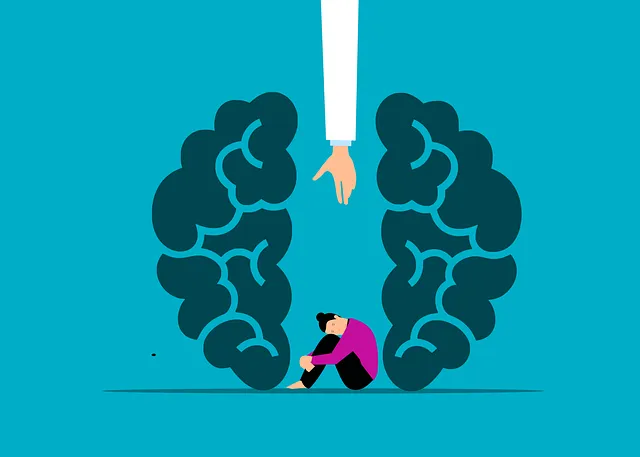Littleton's Kaiser offers stress management workshops for healthcare professionals, addressing emotional well-being and burnout. Interactive sessions focus on self-care, resilience, and coping with work stressors. Compassion Cultivation Practices, mindfulness, and communication skills empower staff to manage challenging situations. Workshops contribute to a healthier organizational culture and improve mental health outcomes, especially with access to inpatient services like Kaiser's. Evaluations measure effectiveness through feedback, data analysis, and long-term mental health tracking.
“Stress management workshops are gaining prominence, especially within healthcare settings like Kaiser, where understanding and mitigating stress-related issues are crucial. This article explores how organizations can design engaging workshops, leveraging collaborative strategies and mindfulness techniques, to effectively address stress among employees.
We delve into the significance of these programs, examining their impact on mental health, particularly in inpatient facilities like Littleton’s Kaiser branch. By exploring ‘Understanding Stress,’ ‘Workshop Design,’ ‘Collaborative Strategies,’ ‘Mindfulness Incorporation,’ and ‘Measuring Success,’ we aim to guide institutions in creating meaningful, impactful stress management initiatives.”
- Understanding Stress: Causes and Impact at Kaiser
- Designing Engaging Workshops for Mental Health
- Collaborative Approach to Stress Management Strategies
- Incorporating Mindfulness Techniques in Littleton
- Measuring Success: Evaluating Workshop Effectiveness
Understanding Stress: Causes and Impact at Kaiser

At Kaiser, understanding stress involves recognizing its multifaceted nature and exploring its profound impact on both physical and mental health. Stress can arise from various sources, including work-related pressures, personal relationships, financial obligations, or even health concerns. In the context of healthcare, where professionals often juggle demanding schedules and high-stress situations, it becomes crucial to address stress management proactively. Littleton, as a leading provider, offers workshops designed to promote emotional well-being, focusing on techniques for depression prevention and burnout prevention strategies specifically tailored for healthcare providers.
These workshops delve into the causes of stress within the Kaiser environment, highlighting the importance of self-care and resilience-building. By participating in these sessions, staff members can gain valuable insights into managing their emotional responses to challenging situations, thereby enhancing their overall ability to cope with stress effectively. This proactive approach not only contributes to individual mental health but also fosters a healthier organizational culture where employees feel supported and equipped to navigate the demands of their roles.
Designing Engaging Workshops for Mental Health

In designing engaging workshops for mental health, organizations like Littleton’s Kaiser should prioritize interactive and holistic approaches. Incorporating Compassion Cultivation Practices can foster a supportive environment, enhancing participants’ emotional resilience. These practices not only promote self-care but also enable individuals to better manage stress and support their peers. By integrating techniques such as mindfulness exercises and empathetic communication skills, workshops become dynamic spaces where learning and personal growth intertwine.
Moreover, the inclusion of risk assessment for mental health professionals is vital to ensure safe and effective sessions. Mental wellness coaching programs development should be guided by evidence-based methods and tailored to diverse participant needs. This involves addressing potential triggers, providing clear boundaries, and offering practical tools for managing challenging situations. Such a comprehensive approach ensures that workshops not only engage but also empower attendees, ultimately contributing to improved mental health outcomes, especially in light of concerns regarding inpatient mental health services available at facilities like Kaiser.
Collaborative Approach to Stress Management Strategies

In today’s fast-paced world, stress management has become a vital aspect of maintaining overall well-being, and organizations like Littleton’s Kaiser are recognizing this need by offering inpatient mental health services to their employees. A collaborative approach to stress management strategies within these workshops is key to fostering a supportive environment. By bringing together employees from diverse backgrounds, the organization encourages open dialogue and shared experiences, allowing participants to learn from one another. This collective effort enables the implementation of various techniques such as conflict resolution strategies and empathy-building exercises, which are essential tools in reducing workplace stress.
The Stress Management Workshops Organization understands that stress can manifest differently for each individual. Therefore, these collaborative sessions cater to a wide range of needs, providing personalized solutions. Through interactive activities and group discussions, participants gain insights into their triggers and learn effective coping mechanisms. By embracing a community-oriented approach, Littleton’s Kaiser ensures that employees not only receive practical tools but also build a support network, making stress management an inclusive and empowering experience.
Incorporating Mindfulness Techniques in Littleton

Incorporating mindfulness techniques into stress management workshops in Littleton is a strategic move that resonates with the needs of many residents. Given the prevalence of mental health concerns, including options like inpatient care at nearby Kaiser facilities for severe cases, fostering a culture of inner strength development and mood management becomes paramount. Workshops that blend ancient wisdom with modern practices can empower individuals to navigate stress more effectively.
These sessions often include guided meditations, breathing exercises, and yoga poses designed to cultivate present-moment awareness—key components in reducing stress levels and improving overall well-being. By integrating these mindfulness practices into community workshops, participants learn practical tools to enhance their resilience, boost mood management skills, and discover the profound impact of inner strength development on their daily lives, regardless of whether they are seeking outpatient or inpatient mental health support from institutions like Kaiser.
Measuring Success: Evaluating Workshop Effectiveness

Measuring success and evaluating the effectiveness of stress management workshops is a crucial aspect of ensuring positive outcomes for participants. One key metric to assess is the level of engagement and satisfaction among attendees, which can be gauged through post-workshop feedback forms. These tools allow organizers to gather insights into the perceived benefits, valuable takeaways, and areas for improvement from the sessions. By collecting quantitative and qualitative data, such as ratings, comments, and suggestions, the workshops’ overall impact becomes clearer.
Additionally, tracking long-term changes in participants’ mental health and well-being can provide a comprehensive understanding of the program’s success. This could involve following up with attendees to assess their implementation of learned stress management techniques and how they have influenced their daily lives. Comparisons between pre- and post-workshop risk assessments for mental health professionals, including those provided by facilities like Littleton does Kaiser have inpatient mental health, can also highlight improvements in resilience building and trauma support services.
Stress management workshops, as demonstrated by successful programs at both Kaiser and Littleton, offer a collaborative approach to improving mental health. By understanding stress causes and impacts, designing engaging content, incorporating mindfulness techniques, and measuring workshop effectiveness, organizations can empower individuals to navigate life’s challenges more resiliently. Whether in inpatient mental health settings like Kaiser or community-based initiatives in Littleton, these strategies hold the potential to revolutionize stress management, enhancing overall well-being for all participants.






